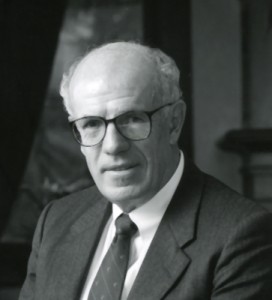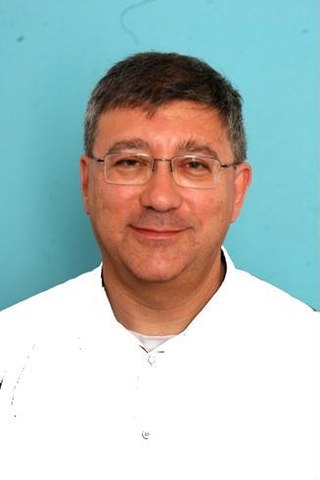Related Research Articles

Health informatics is the study and implementation of computer structures and algorithms to improve communication, understanding, and management of medical information. It can be viewed as a branch of engineering and applied science.
Consumer health informatics (CHI) is a sub-branch of health informatics that helps bridge the gap between patients and health resources. It is defined by the American Medical Informatics Association as "the field devoted to informatics from multiple consumer or patient views". The Consumer Health Informatics Working Group (CHIWG) of the International Medical Informatics Association (IMIA) define it as "the use of modern computers and telecommunications to support consumers in obtaining information, analyzing unique health care needs and helping them make decisions about their own health".

The Sociedade Brasileira de Informática em Saúde, abbreviated as SBIS, is a professional society created in November 1986 in Campinas, during the First Brazilian Congress on Health Informatics. It has the mission of promoting the development and the interchange of ideas and results in the fields devoted to the information technologies applied to the health sciences.
The International Federation for Information Processing (IFIP) is a global organisation for researchers and professionals working in the field of computing to conduct research, develop standards and promote information sharing.
Health information management (HIM) is information management applied to health and health care. It is the practice of analyzing and protecting digital and traditional medical information vital to providing quality patient care. With the widespread computerization of health records, traditional (paper-based) records are being replaced with electronic health records (EHRs). The tools of health informatics and health information technology are continually improving to bring greater efficiency to information management in the health care sector.

The Indian Association for Medical Informatics (IAMI) is a professional society that plays a role in promoting and furthering the application of informatics in the fields of healthcare, bioscience and medicine in India. It was established in Feb 1993 by Prof. Dr. Nanduri Gajanana Rao BSc, MBBS, MNAMS, PhD at Nizam's Institute of Medical Sciences, Hyderabad. Registered at District Registrar of Societies on 18 Sep 1993 - Regn No. 3774/93

Gunther Eysenbach is a German-Canadian researcher on healthcare, especially health policy, eHealth, and consumer health informatics.
The European Federation for Medical Informatics (EFMI) is a non-profit organization, which was conceived at a meeting, assisted by the Regional Office for Europe of the World Health Organization (WHO), in Copenhagen,, in September 1976.
MedInfo is the name of the international medical informatics conference organized initially every 3 years and now every other year by the International Medical Informatics Association. It is the most important international conference in the field with health and medical informatics professions attending from all over the world. MedInfo also serves to bring together all officers of the International Medical Informatics Association (IMIA) Board together with national representatives in the General Assembly of IMIA.

Homer Richards Warner was an American cardiologist who was an early proponent of medical informatics who pioneered many aspects of computer applications to medicine. Author of the book, Computer-Assisted Medical Decision-Making, published in 1979, he served as CIO for the University of Utah Health Sciences Center, as president of the American College of Medical Informatics, and was actively involved with the National Institutes of Health. He was first chair of the Department of Medical Informatics at the University of Utah School of Medicine, the first American medical program to formally offer a degree in medical informatics.
The American Medical Informatics Association (AMIA), is an American non-profit organization dedicated to the development and application of biomedical and health informatics in the support of patient care, teaching, research, and health care administration.
Health information technology (HIT) is health technology, particularly information technology, applied to health and health care. It supports health information management across computerized systems and the secure exchange of health information between consumers, providers, payers, and quality monitors. Based on a 2008 report on a small series of studies conducted at four sites that provide ambulatory care – three U.S. medical centers and one in the Netherlands, the use of electronic health records (EHRs) was viewed as the most promising tool for improving the overall quality, safety and efficiency of the health delivery system.
Informatics is the study of computational systems. According to the ACM Europe Council and Informatics Europe, informatics is synonymous with computer science and computing as a profession, in which the central notion is transformation of information. In some cases, the term "informatics" may also be used with different meanings, e.g. in the context of social computing, or in context of library science.

Yuval Shahar is an Israeli professor, physician, researcher and computer scientist

Roy F Rada is a professor emeritus whose research in computer science and information systems appeared in journal articles from 1979 till 2022.
Eike-Henner Kluge is the first medical ethics expert witness recognized by Canadian courts. Dr. Kluge has acted as an expert witness in Alberta, British Columbia, and Ontario. He is known for his work on contentious medical ethics issue such as abortion and the ethics of deliberate death in addition to privacy and medical informatics. He established and was the first director of the Canadian Medical Association Department of Ethics and Legal Affairs. Dr. Kluge is the author of the International Medical Informatics Association's code of ethics and their ethics handbook. Additionally, he is a fellow in the Royal Society of Canada.

Dean Forrest Sittig is an American biomedical informatician specializing in clinical informatics. He is a professor in Biomedical Informatics at the University of Texas Health Science Center at Houston and Executive Director of the Clinical Informatics Research Collaborative (CIRCLE). Sittig was elected as a fellow of the American College of Medical Informatics in 1992, the Healthcare Information and Management Systems Society in 2011, and was a founding member of the International Academy of Health Sciences Informatics in 2017. Since 2004, he has worked with Joan S. Ash, a professor at Oregon Health & Science University to interview several Pioneers in Medical Informatics, including G. Octo Barnett, MD, Morris F. Collen, MD, Donald E. Detmer, MD, Donald A. B. Lindberg, MD, Nina W. Matheson, ML, DSc, Clement J. McDonald, MD, and Homer R. Warner, MD, PhD.
Bernd Blobel is a scientist recognized for his contributions to the field of health informatics. He is a professor at the Faculty of Medicine of the University of Regensburg, Germany, and visiting professor at the First Faculty of Medicine of the Charles University of Prague, Czech Republic. His main areas of research include electronic medical records, security, privacy and interoperability, information systems architectures in health, telemedicine and biomedicine, engineering, translational medicine, knowledge representation, and ontologies. He has received numerous recognitions for his scientific career, among which are: Fellow of the American College of Medical Informatics (ACMI) (2004), Fellow of HL7 International (2010), Fellow of the Australasian College of Health Informatics (ACHI) (2011), Honorary Fellow of the European Federation of Medical Informatics (EFMI) (2015), Inaugural Fellow of the International Academy of Health Sciences and Informatics (IAHSI) (2017), and Honorary Fellow of the EuroMISE Mentors Association, as well as Honorary Fellow of HL7 Germany and the Society for Biomedical Engineering and Medical Informatics of the Czech Republic. He is the author of more than 200 high-impact scientific articles, including the book Analysis, Design and Implementation of Secure and Interoperable Distributed Health Information Systems.

Marion Jokl Ball is a South African-born American scientist, educator, and leader in global Biomedical and Health Informatics. She holds the Raj and Indra Nooyi Endowed Distinguished Chair in Bioengineering, University of Texas at Arlington, is Presidential Distinguished Professor, College of Nursing and Health Innovation and serves as the Founding Executive Director, Multi-Interprofessional Center for Health Informatics (MICHI), University of Texas at Arlington. She is Professor Emerita, Johns Hopkins University School of Nursing and Affiliate Professor, Division of Health Sciences Informatics, Johns Hopkins School of Medicine. A member of the National Academy of Medicine (NAM), she is a pioneers of Informatics in Nursing and in Medicine and a founding member of the Technology Informatics Guiding Education Reform (TIGER), a global grassroots initiative that formalized in 2006 to enable nurses and later, the multi-interdisciplinary healthcare workforce in 34 countries to best make use of Health Informatics principles, methods, tools, and resources. Ball is the author/editor of over 35 books and over 200 articles in the field of Health Informatics.
Morris Frank Collen was founder of the Kaiser Permanente Division of Research and an original member of the Permanente Medical Group, pioneering developer of Automated Multiphasic Health Testing (AMHT) systems, and Electronic Health Records (EHRs) for Public Health and Clinical Screening, serving as a model for pre-paid healthcare at the national level. Collen was a Founder of the American College of Medical Informatics (ACMI) in 1984, and the American Medical Informatics Association (AMIA) in 1989. The Morris F. Collen Award of Excellence was established in his honor by ACMI in 1993. In 1971 Collen was elected a member of the Institute of Medicine of the National Academy of Sciences.
References
- ↑ Welcome to IMIA. Yearb Med Inform. 2017 Aug;26(1):269–71. doi : 10.1055/s-0037-1606513. Epub 2017 Aug 19. PMCID: PMC6246120.
- ↑ "IMIA History Book". imia-medinfo.org/.
- ↑ "IMIA's five official journals". imia-medinfo.org/. October 26, 2022.
- ↑ "Accident & Emergency Informatics – IMIA A&EI WG". imia-medinfo.org/.
- ↑ "Health Informatics for Patient Safety WG". imia-medinfo.org/.
- ↑ "History of BioMedical and Health Informatics WG". imia-medinfo.org/.